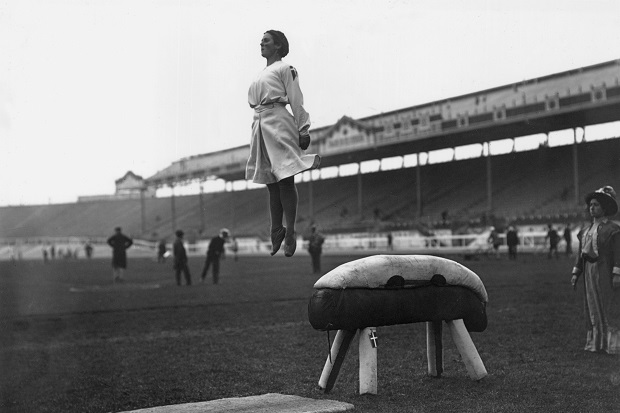When the idea of a modern Olympic Games began to be discussed, Spectator writers couldn’t really see the point. ‘Beyond a certain waste of money, there will be no harm in the new whim,’ the magazine ruled in 1894, but the notion that the competition would bind nations together didn’t seem very convincing:
Why? Is it because they will all for a few days be recalling the Greeks and their achievements, and their short-lived superiority in all the arts? They cultivated of all Europe once studied Latin; but they cut one anothers’ throats for all that with a singular unanimity of brutality.
The diplomat Harold Nicolson agreed in 1948 that the Games were not the great unifying force they’d been billed as:
As one who has devoted much of his life to the cause of international conciliation, I regret that every few years or so much money and great powers of arrangement should be devoted to organising conflict; and that many hundred young men and women should return to their homes under the belief that all umpires are corrupt and that all foreigners cheat.
The Spectator has been sanguine about Britain’s performances at the Olympics over the years, taking comfort in 1908 from the fact that all the judges were British.
We may be the depositaries of all sporting truth, but our disciples in other lands are already our equals on many points of practice. But let that pass; in our old age we can support our dignity by a reputation for Solonic wisdom.
When the Games were held in Paris in 1924, the crowd ‘allowed its nationalist passions the freest vent’, usually at the expense of Britain and America. ‘Only the Anglo-Saxons,’ the magazine cheerfully lamented, ‘have as yet quite mastered the spirit of games’.
British athletes didn’t feature heavily in the medal table in 1936, but the nation should be proud of having shown the world the value and pleasures of physical exercise. More provision should be made for people to enjoy sport, but ‘it will be a deplorable day when, in England, the State begins to spend time and money in organising athletics for competitive and nationalist purposes’.
The lesson of the Games, if games have any lesson, is that we should be glad other nations have taken so enthusiastically to activities which we ourselves value. We are sure most people in the country recognise the folly of the grave conclusions that have been drawn from our defeats. When to win the Olympic Games becomes an object of British, as it has of German, policy, we shall really have reached the stage of senility, the true decadence.
A few years before, F. Yeats-Brown had admired the emerging sport culture in Germany, describing a nationwide craze for all sorts of drills and sports, including naked wrestling.
The Germans, with their Government behind them, seek their new Kultur with the seriousness and the self-sacrifice that they did the old. And it is all to the good that this thoroughness is being devoted to health and happiness, rather than to war games and the billeting of Uhlans. Something useful should come of it.






Comments